Islands of Change, the solidarity economy platform created by Giorgio Porcellana is revolutionising digital finance.
Giorgio Porcellana’s project immediately attracted media attention and created controversy. Some criticised it. Why? It’s simple: we are talking about a perpetual series of solidarity-based economic donations for the benefit of all peoples! An innovative project that the great economic powers do not like. In fact, if someone asked you to donate money, would you do it? And if we told you that there is an international community where participants actually exchange gifts consisting of money, would you believe it? Yes, it really exists
Most of the world’s population is accustomed to the linear economy. You work, sell products or services and earn money. When the money runs out, you have to work again or sell more, producing or buying first, what you want to sell. But there is another economy, which is ancient and gift-based. Here, participants receive money as a gift without having to work and without having to give it back.

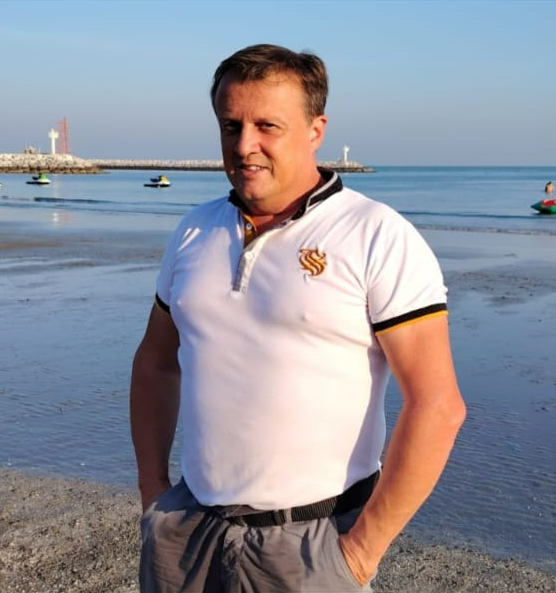
Giorgio Porcellana, the project’s creator and spokesperson, lives by moving between Asia and Latin America, following the lifestyle of digital nomads, while the JOREL International Foundation supports innovative humanitarian projects. These include the creation of bio-sustainable, free-energy eco-villages. The houses are independent, with a garden, a family vegetable garden and, for those who wish, a swimming pool. Villages in which nothing will be lacking, including schools, health centres and much more. A concrete example of sustainable and solidarity-based living.
This economy is real and is called Islands of Change (IOC). A Department that is part of the INTERNATIONAL JOREL FOUNDATION, an International Humanitarian Foundation based in Panama, which has some amazing projects!
F747 met Giorgio Porcellana, known in the community as Jorel, who in this interview talked about how his dream became reality. A project that is causing a stir in social and media circles. In this interview, Giorgio Porcellana speaks passionately about the transformative potential of a solidarity economy, seeing it as a way to rethink society’s values.
Giorgio Porcellana emphasises how this system fosters generosity and collaboration rather than profit motives, highlighting how it strengthens trust and community ties. Drawing on historical examples, Giorgio Porcellana shows that gift economies have deep cultural roots and can offer an ethical and sustainable alternative to modern capitalist models.
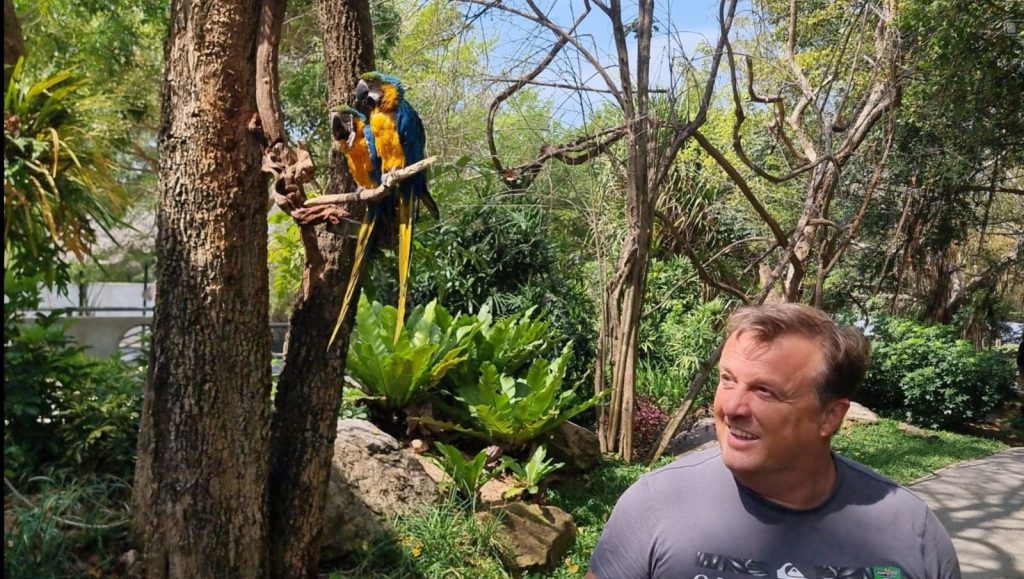
F747: how did the idea of creating a solidarity economy community come about?
Giorgio Porcellana: The Circular Solidarity Economy of Giving has deep roots in antiquity. It is based on mathematical and geometric principles developed by the Sumerian people but originally had different purposes. This model has been adopted for millennia by communities and tribes around the world, particularly in Africa, South America, and the Orient, as well as by groups of Jewish origin. This is not charity, but an economic system created by people for people, capable of growing with the increase of participants and redistributing resources in a solidarity-based and cyclical manner.
The system was based on a logic of rotation. Community members would join together to collect goods such as food, clothes and handicrafts to be given to a family in turn.
The latter, after retaining what it needed, donated some to other families. Once the initial phase was completed, the cycle would begin again with a new family, also involving those who had already benefited from this system as well as new participants. This process guaranteed continuous support without impoverishing anyone and ensuring that every member of the community had access to the necessary resources.
A model that is still alive in some African tribes, where gift-giving and redistribution create shared abundance. In communities of Jewish origin, however, this economy evolved into the use of money instead of material goods. Thus was born a true circular economy that allowed people to live without working for money, devoting themselves to personal, cultural or creative activities. As the system grew, it allowed the accumulation of ever larger sums, which were also invested to create businesses in strategic sectors.
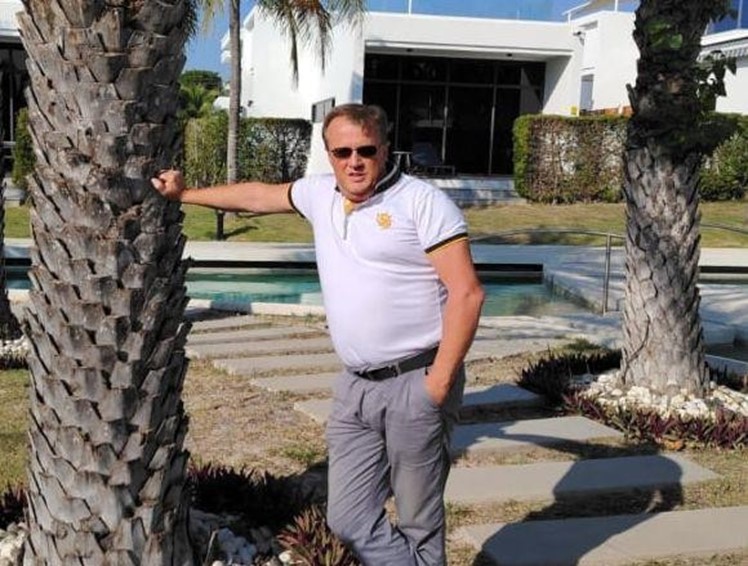

This model gave rise to businesses that revolutionised the global economy, such as tobacco, oil, steel, transport, telecommunications, pharmaceuticals and finance enterprises. These activities have not only employed thousands of people, but have also made the families involved increasingly influential. This system is a unique example of how solidarity and collaboration can create wealth and stability.
F747: what is the theory of the solidarity economy, and why has it become relevant?

Giorgio Porcellana: The classic Solidarity economy, or Gift economy, represents an economic and cultural model based on the use value of goods and services offered as gifts rather than the value of monetary exchange. It is based on a reciprocal gift with no immediate or future reward obligation. This system breaks with the traditional logic of accumulation
and profit, challenging the centrality of profit that dominates the modern economy. In its gratuitousness, the gift presents itself as a symbolic and social act that reaffirms the possibility of an alternative economy based on relationship and solidarity.
The gift is not simply a material transfer; it is an action that implies a decision and courage, requiring the donor to establish and strengthen social ties. This gratuitous gesture creates a relational system in which value is not defined by profit, but by the connection between people that produces solidarity and trust. As the story illustrates, giving has a dimension that transcends calculation: even when resources seem scarce, the act of giving generates a symbolic abundance that is renewed.
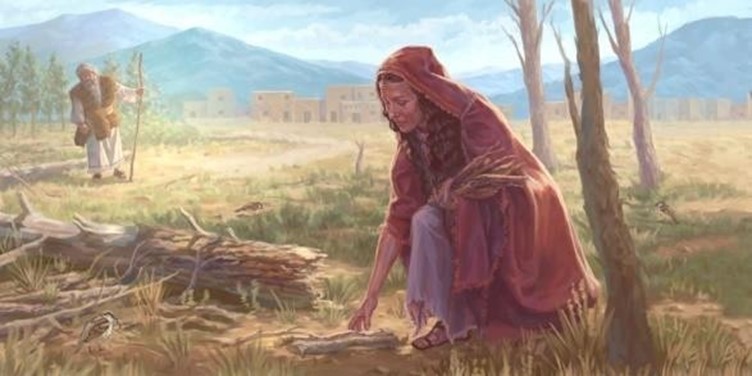

F747: Is the gift economy a challenge for modern economists?
Giorgio Porcellana: Yes, but because the basic concept is completely different. The gift represents a paradox for traditional economists, who consider it irrational because it does not fit into the parameters of monetary logic. The solidarity economy does not deny the value of established economic systems, but challenges them to recognise the need to integrate values such as gratuitousness and solidarity. It is not about replacing markets or capitalism, but about proposing more inclusive perspectives in which social and political considerations mediate economies. The solidarity economy is not a utopia, but an invitation to rethink economic and social relations where even internationally renowned economists, such as Nino Galloni, have confirmed its validity and social functionality!
A modern example of the solidarity economy is the free software community, where programmers and users freely share codes, improve programmes and distribute the results, without expecting direct profit. This approach demonstrates that the gift is not just a concept of the past, but a principle that can also be applied in technological and globalised contexts. The freedom to create, improve and redistribute is an act of collective generosity that benefits not only individuals but the entire community.
The gift economy does not deny the value of economic systems consolidated, but challenges them to recognize the need to integrate values such as gratuity and solidarity. It is not a question of replacing markets or capitalism, but of proposing more inclusive perspectives, in which economies are mediated by social and political considerations.
The gift economy is not a utopia, but an invitation to rethink economic and social relationships where even
international economists, such as Nino Galloni, have confirmed its validity and social functionality! A modern example of a gift economy is the free software community, where programmers and users freely share
code, improve programs, and distribute the results, without expecting direct gain.
This approach demonstrates that gift is not just a concept of the past, but a principle that can also be applied to technological and globalized contexts. The freedom to create, improve, and redistribute is an act of collective generosity, which benefits not only individuals but theentire community.

F747: why is gift-giving not in line with neoclassical economics?
Giorgio Porcellana: The gift challenges neoclassical economics because it undermines one of its fundamental pillars: the maximisation of individual utility. The gift, in fact, is not an individualistic act but a relational one, linked to relationships between people and social dynamics. David Graeber has shown that the economy did not originate from barter or money, but from debt, and before that from gift, he defines it as a total social fact: a cultural element inextricably linked to all other aspects of society.
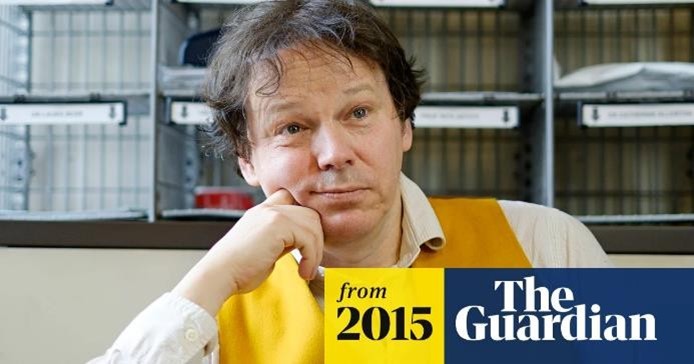
An emblematic example of the solidarity economy is the potlatch, a traditional ceremony practised by the natives of the Pacific Northwest coast (such as the Kwakiutl, Tlingit and Salish). In these celebrations, the generosity of the participants is rewarded with social prestige. But this was also the case in 8th century Lombard Italy.
The term itself, potlach, means ‘gift’ in the Chinook language. During these occasions, there is a competition in donating goods, creating a virtuous cycle of reciprocity and reinforcement of social status. Mauss defined this practice as a perfect example of the solidarity economy, demonstrating that the value of the gift exceeds that of money, as it incorporates altruism, prestige and relationships.
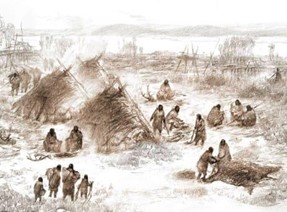




We also find traces of these dynamics in our modern culture. During occasions such as Christmas, Birthdays, Weddings, Baptisms or Communions, we practice a kind of modern potlatch, exchanging gifts that strengthen our social bonds and reaffirm reciprocity. But gift-giving is also done to offer support to a beggar, a street musician, a waiter or a guy who helps you pack your shopping in a supermarket. Although often mediated by consumption, these gestures preserve the essence of the gift: the building and maintaining of relationships.

Therefore, the gift is not just an economic gesture but a process that holds society together. It is an act that generates connections, creates reciprocal obligations, and challenges the dominance of utilitarianism. It shows that the human being is first and foremost a social animal, capable of constructing meaning through sharing and generosity.
F747: Anthropologists, economists and philosophers have studied the gift economy, was Giorgio Porcellana needed to implement it?
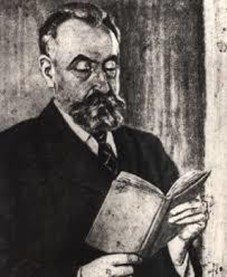
Giorgio Porcellana: Ahahah, it seems so! I have elaborated and developed a mathematical system for gift exchange as an economic system, building on past techniques. But among the leading scholars of primitive economies and the solidarity economy, we find prominent figures such as Karl Polanyi (The Livelihood of Man), Marcel Mauss (Essay on the Gift), Bronislaw Malinowski (The Argonauts of the Western Pacific), Raymond Firth (We, the Tikopia) and Maurice Godelier, among others. Their studies have provided insight into the dynamics of non-market-based economies, highlighting how the gift is a central element in the social and economic organisation of many cultures.
Although the solidarity economy is often associated with traditional communities, examples of its operation can also be found in the contemporary world. For example, blood collection centres operate through voluntary donations, without offering material rewards to donors. Similarly, families who donate organs receive no financial compensation, showing how altruism prevails over monetary gain in these acts.
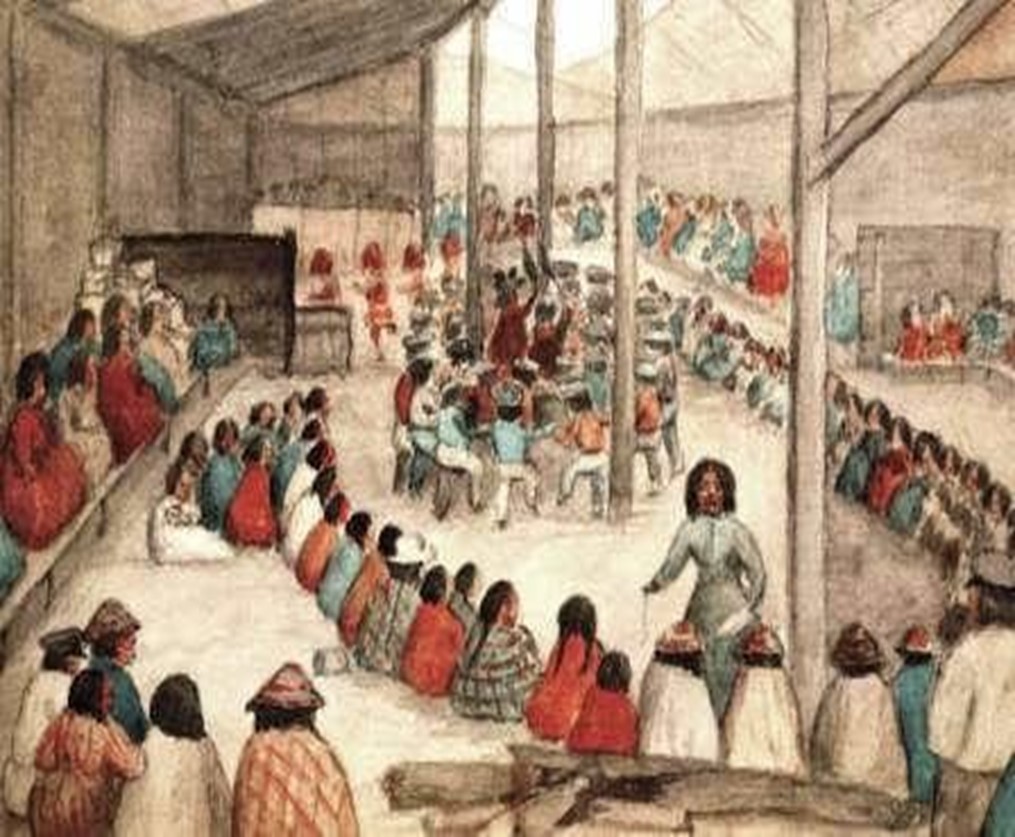
Another significant example is the free software communities. Programmers share the source code of their programmes on the Internet, allowing anyone to copy, modify or improve it. In return, they gain prestige and recognition within the technology community, while the collective benefits from more advanced and functional tools. This model demonstrates how the solidarity economy can coexist with modern, technological environments.
Before the 19th century, gift economies existed in Pacific Island societies, which in some cases still persist today.
For example, despite the development of a market economy in the Cook Islands and Tokelau, inati is still practised: a system of equitable sharing of all the food harvested in each atoll.
Diaspora communities in New Zealand, Australia and the United States, while participating in the market economies of the countries in which they live, also try to maintain traditions related to the solidarity economy, such as the reciprocity of money and gifts.
This practice is essential in the cultures of Samoa (fa’aSamoa), Tonga (anga fakatonga) and other Pacific communities, highlighting the importance of gift-giving as a founding element of their cultural identity.
F747: It may sound like science fiction to some, do you have many detractors?
Giorgio Porcellana: Not many, but some are relentless and try to discredit us, driven by the idea that there has to be something shady going on to receive monetary gifts. They just can’t understand that there are others in the world who don’t always do things just for their own exclusive benefit, but for the good of the community, and this is one of them. They wonder how this system can multiply the money if there is no investment asset behind it, but they do not understand that we bring the money ourselves, exchanging it with each other and in turn, due to a mathematical and geometric effect, which allows us to give 1 and receive 4 or 8 (depending on the type of Island we take), so it does not multiply by magic.
It is a simple passage of Gifts in Money, where through a mathematical scheme, there is a time when we deprive ourselves of a modest sum, to give it to another participant, and there is a time when we receive 4 or 8 times more, when it is our turn, without anyone ever being left empty-handed!
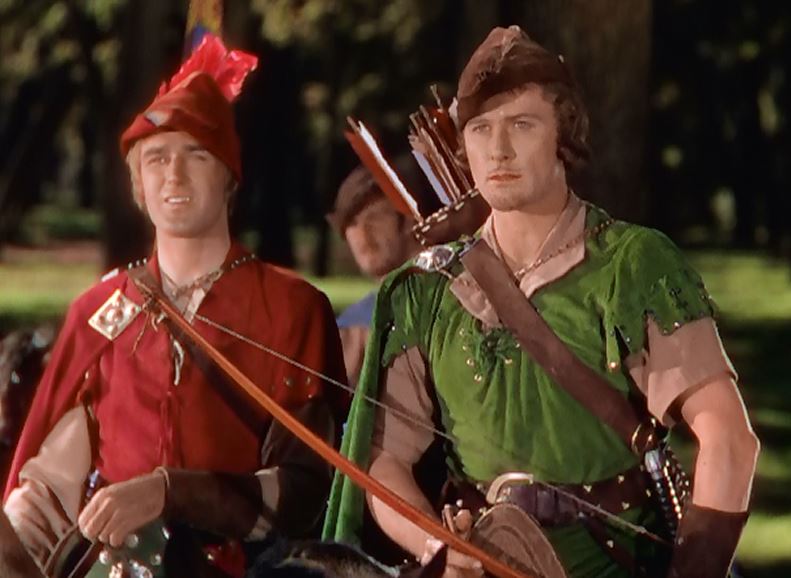
It is a continuous passage that never causes us to donate 8 in order to receive 1, because it always spins in one direction and in a perpetual manner, as in continuous cycles (without a set time); after donating 1 we will find ourselves again advancing to the central position of Heir, where we will again receive 8 or 4 gifts, and the advancement thrust that makes the wheel turn, we give it ourselves, by re-entering as perpetuals, by inviting new participants, by inserting virtual clones, by offering the gift to a family or a single person, or even by the entry of a participant from somewhere in the world, who has individually discovered our reality. The advancement systems are many and all this without any obligation to recruit. We enter by free choice, no one forces us and we are all aware of how this system works. It is written in big letters in the Terms and Conditions and we always repeat it in all group zooms and chats!

If we have new participants, we only accelerate the progress and thus the arrival at the goal, but we can safely insert virtual Avatars or wait for others. Each time we travel to a new, smaller island, the system duplicates us anyway, inserting a Clone when we are Heir and so for everyone. This is our winning strength!
Interrupting this mechanism, for those who believe that sooner or later the participants will run out, is like thinking that sooner or later a driving school will have to close for lack of participants because sooner or later, they will run out of people! And well it’s more than 100 years that the licence has existed, and yet every year, there are always millions of people from all over the world, who sign up in the various Agencies, because there are always those who go, those who arrive and those who return, and with all the possibilities that we have inserted to advance, there will always be an Avatar who will enter our Island, to advance us to Heir and thus receive the next Due Gifts.
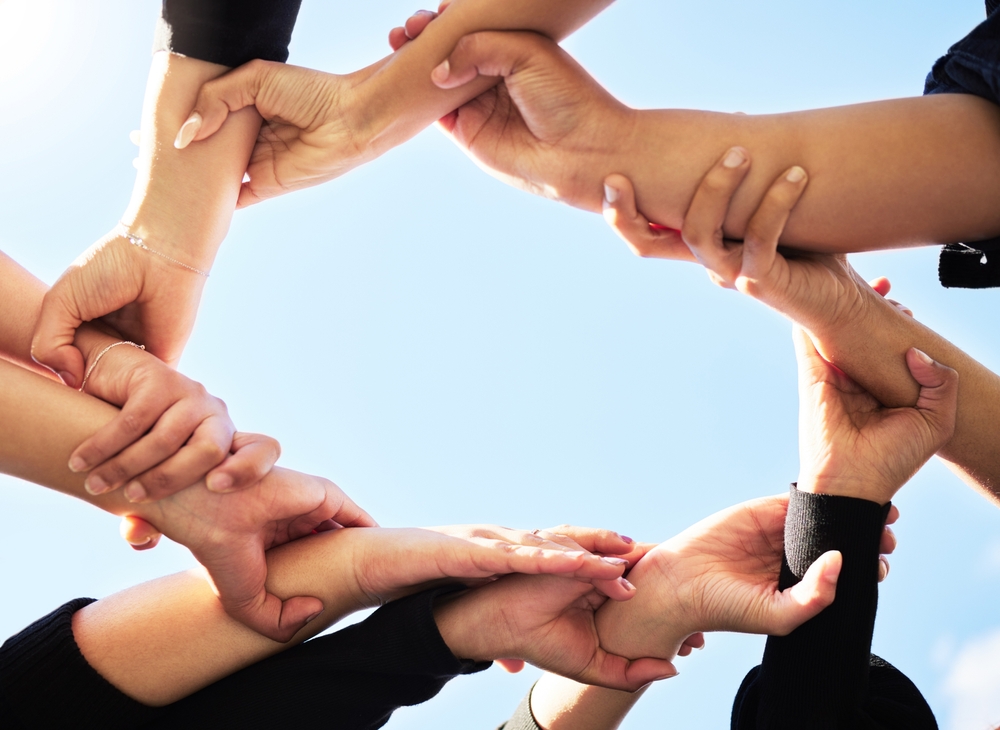

At most, we will give up a gift if we want to speed up the arrival at the set destinations, but by closing a position ourselves, we will arrive again to receive the remaining gifts. If we add to this the fact that each of us will always have our own direct invitees who will enter their own Island (to help us advance), especially when they return as perpetual, just as we will always enter the Island of our own invitee (to help their advancement as well), united by an automatic system that will send us a specific Avatar (in the event of a slowdown), we can say that it is almost impossible to stand still for an infinite amount of time. But ignorance is an ugly evil unfortunately and these people play at being Sheriffs, Robin Hoods or Paladins of Justice. Too bad that instead of going after the real scams, they follow the butterflies that fly!
Others, however, are paid by exclusive agencies to discredit at all costs realities that can improve people’s lives. The system we know does not want either happiness or economic abundance for the people, and so private agencies finance participants to discredit and besmirch everything and everyone, but international lawyers fight these. Defamation is paid for by the law and it will be of no use for them to hide behind fake or anonymous profiles!
F747: What would you advise those who try to discredit you?
Giorgio Porcellana: To study. But if they really find it difficult, they could at least use cinema and fiction. Maybe it is easier for their cultural level. Film and fiction have often explored the theme of the solidarity economy. Through these narratives, they imagine societies in which economic exchange is not regulated by money, but by principles of solidarity and reciprocity.
A significant example is Kim Stanley Robinson’s Martian trilogy, which imagines human societies developed far from Earth and adopting the solidarity economy.


Le Guin approaches the subject through an anarchic society that fully embraces this economic system, emphasising the importance of cooperation and the rejection of private property.
Another example is William Morris’ News from Nowhere, which depicts a utopia where the solidarity economy governs all social interactions, offering a vision of harmony and social justice. Science fiction further expands the imagination of the solidarity economy.
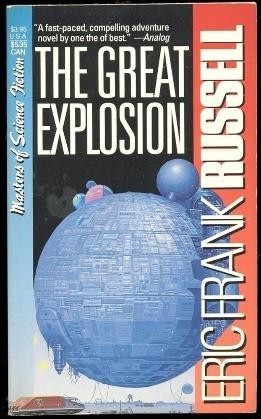
Eric Frank Russell’s The Great Explosion, for example, tells the story of the encounter between a military spaceship and a pacifist society inspired by Gandhian principles, where gift-giving replaces the traditional market.
In Down and Out in the Magic Kingdom by Cory Doctorow, however, the story is set in a future where immortality and abundance make material goods irrelevant. In this context, money is replaced by an economic system based on reputation, which regulates social dynamics.
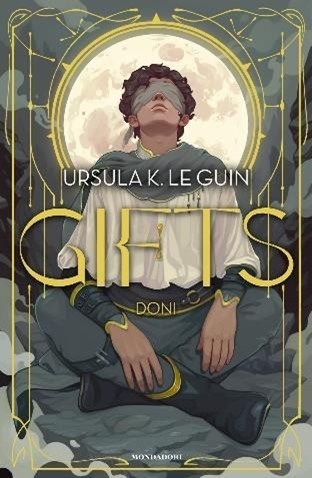
In cinema, one of the most emblematic examples is the film ‘A Dream for Tomorrow’ (Pay It Forward, 2001), directed by Mimi Leder. The film tells the story of a young man who proposes a system to improve the world based on giving.
But among other filmic examples of great interest, we can still consider Kim Stanley Robinson’s ‘The Martian Trilogy’ (inspired by literature, but offering hints for future film adaptations) and among other suggested global thematic contributions, it would be wonderful if one day Netflix would produce a documentary on the Islands of Change.
F747: How does Islands of Change work?
Giorgio Porcellana: With the advent of technology, managing these circular gift mechanisms has become much easier. From this combination of technique and mathematical logic comes Islands of Change, an innovative digital platform that allows those who wish to access a system based on solidarity and a circular solidarity economy designed to benefit all participants.
At Islands of Change, the activity of giving is completely voluntary. It requires no investment, participation in business or purchase of products and services. There are no invitation or recruitment requirements, management costs or subscriptions. There is no need to purchase educational or training materials, nor are there set dates for receiving gifts. Each advancement towards the position of Heir (the central one with the associated gifts), follows unpredictable timelines and may require patience. However, the system guarantees that, sooner or later, each participant will reach his or her position of Heir, where he or she will finally receive the Gifts.
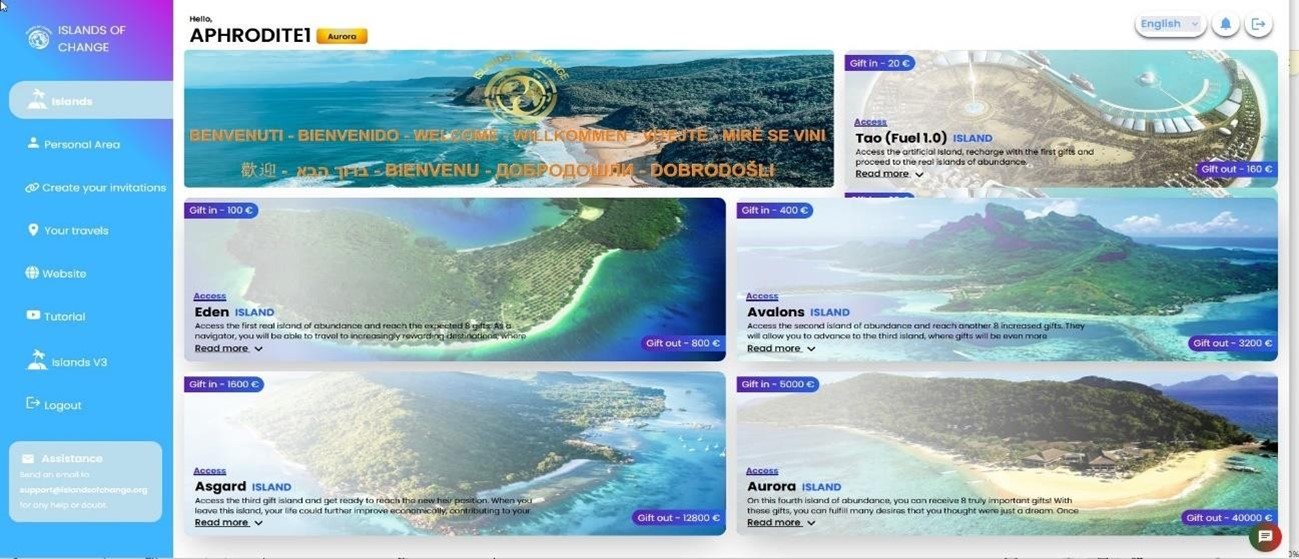
To access Islands of Change you need either a Referral Link provided by an already registered participant or an automatic Link (No Referral), which means without an invitee, provided directly by an Eternal of the Foundation, accessing from the Website.
It will still be possible to hook up with an invitee later, as it could be an advantage to follow someone specific, to get more momentum with each new Island entry. Once you are registered then (after a KYC), you will be able to join the first island in the system, starting your journey into the circular and solidarity economy through the first Fast Islands circuit. We zoom in on this a week to inform you live on how best to proceed, as well as talking about it on the specific Chats.
After becoming an Heir in the first island, you will then be able to enter a second, more advanced island, where you will be able to enter with a greater gift, through the gifts you have just received (thus no longer from your own economy), but where you will receive greater gifts.
And so on through the 6 islands of the 3rd Archipelago (the faster ones).
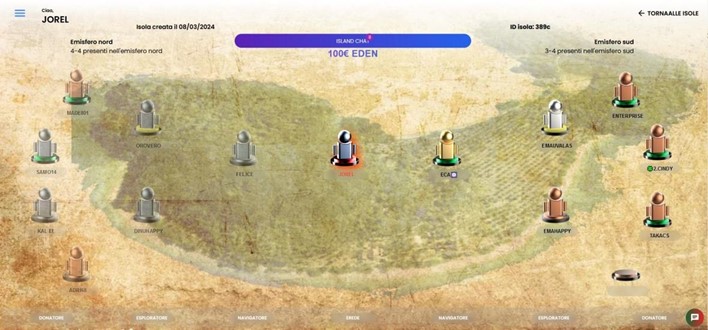
Subsequently, however, you will also have access to 2 other archipelagos (the 1st and 2nd), each consisting of 4 Islands, where the gifts will be 8 and not 4. These subsequent levels allow you to receive gifts of increasing value, offering further opportunities within the system and, thus, the Community.
The nice thing is that we give access even to those who do not have the initial gift to enter, thanks to a Solidarity Gift, which will be recovered by the Heir, who will also confirm it on the Island when the new Donor becomes Heir. I had the IT technicians implement a solidarity action to allow everyone to access Islands of Change and thus enter this Circular Solidarity Economy of Giving.
F747: Can you give us a practical and understandable example of how Islands of Change works?
Giorgio Porcellana: Let’s take the example with gold coins, as it used to be, but it’s the same in €, $ or other currency (like cryptos). Here is a practical and simplified example of how the Islands of Change system works, using a gift-based mechanism that for simplicity’s sake, we exchange in €:
A participant enters the system by offering an initial gift, e.g. 100 coins. This allows him to enter the first island. He waits for 3 more participants to enter but may already find them present when he enters. At this point, he reaches the position of Heir, and with the arrival of 4 more participants, he receives 4 gifts of equal amount to what he donated on entry, i.e. 400 coins.
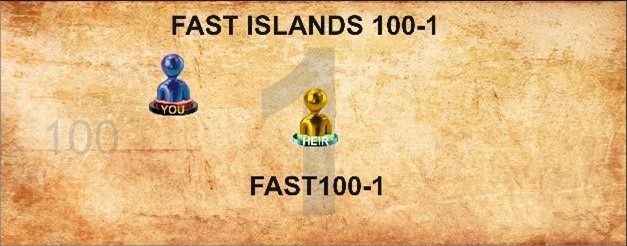
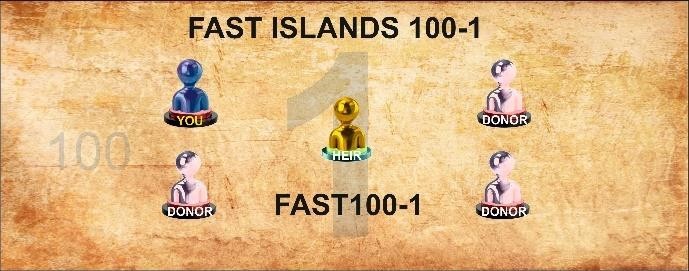
With the 400 coins received, the participant:
- Use 200 coins (half) to access the next level.
- He keeps 100 coins for his own needs.
- Use the remaining 100 coins to re-enter the first level.
From the 2nd entry of the 1st island onwards, each time the participant returns to being an Heir in the 1st level, he may keep 300 coins for himself and use only 100 to re-enter, because he has already entered the 2nd level with the first cycle.
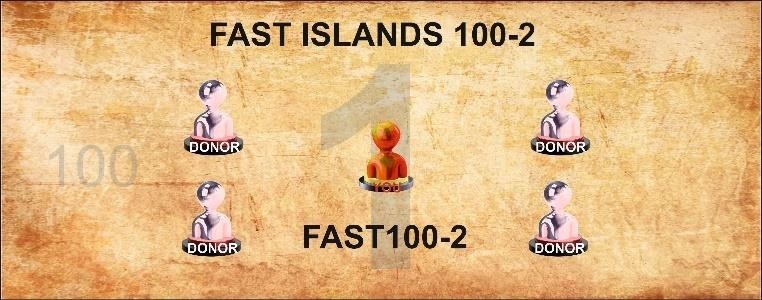
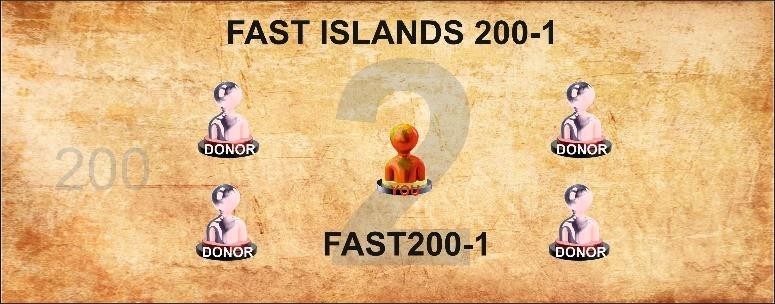
When he reaches the second level instead (the 2nd Island), having donated 200 coins, the mechanism repeats itself. But when his turn as Heir comes, he receives 4 gifts of 200 coins each, for a total of 800 coins. With these:
- Use 400 coins to access the next level (the third).
- He keeps 200 coins for his own needs.
- Use 200 coins to re-enter the second level.
From the 2nd Island entry of 200 onwards, the participant can keep 600 coins (3 gifts) for himself, using only 200 coins to re-enter, because in the 3rd Island, he is already there.
On the 3rd Island, having entered with a gift of 400 coins, the participant received 4 gifts of equal amount, for a total of 1,600 coins. With these:
- Use 800 coins to access the fourth level (i.e. 2 Gifts).
- He keeps 400 coins for himself (which he does not have to return to anyone).
- Use 400 coins to re-enter the 3rd Island perpetually
(to infinity).
From the second entry onwards, on the 3rd Island of 400, he can keep 1,200 coins for himself and give only 400 coins back.
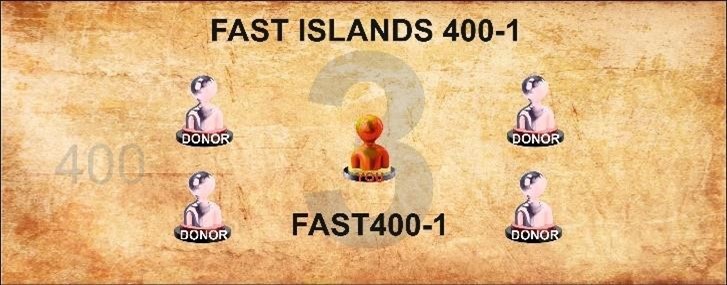
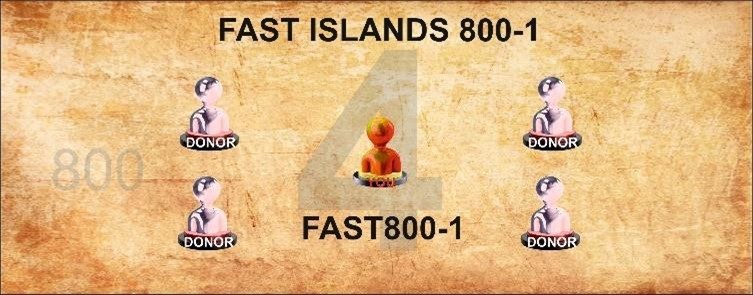
In the 4th Island, having entered with a Gift of 800 coins, the participant receives 4 gifts of equal amount, so 3,200 coins, of which he can keep 1 Gift for himself in the first round, thus 800 coins.
He will use two of them to enter the 5th Island, then 1,600 coins, and 1 Gift to re-enter as a perpetual, then 800 coins.
In the next cycle, when he returns as an Heir from the 2nd time onwards in the 4th 800 Island, he can keep 3 gifts for himself, thus 2,400 coins, using only one 800 gift for perpetual return. As long as desired.
After that from the 5th Island, he will receive 4 Gifts of 1,600 coins of which 1 Gift he can keep for himself, 2 Gifts he will use to gain access to the last Island (the 6th), then 3,200 coins and 1 Gift of 1,600 he will use to return perpetually.
Again, when he is heir for the 2nd time on this island, he can keep 3 gifts of 1,600 for himself, so 4,800 coins and only one gift of 1,600 must be used to return perpetually to the same island.
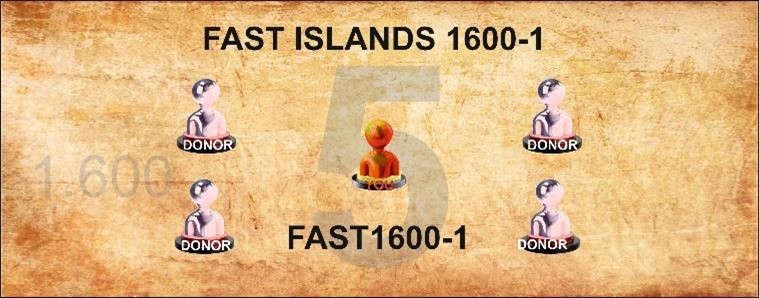
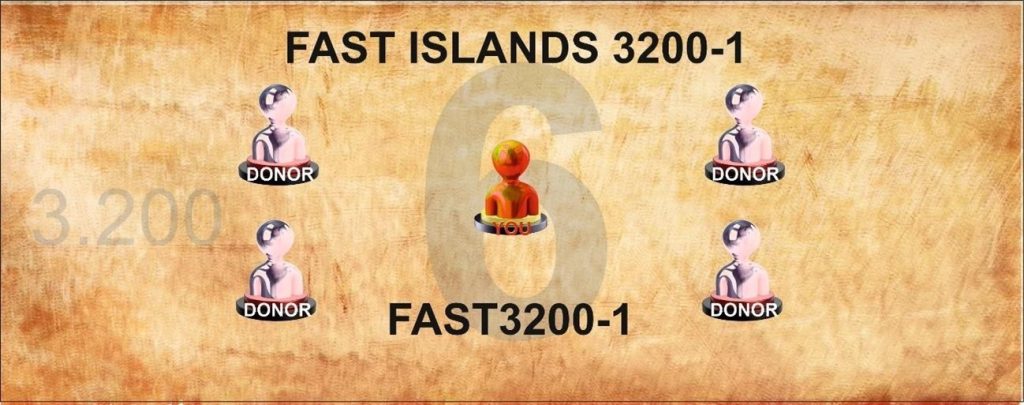
Finally, from the final 6th Island of 3,200, he will receive 4 Gifts of the same amount (12,800 coins), of which, as there are no other Islands advanced, he can keep 3 Gifts for himself immediately, i.e. 9,600 coins, while only 1 Gift of 3,200, he will have to use to access the same Island again (as a Perpetual participant).
This mathematical plan is designed to ensure that all participants can advance and receive the gifts, without exclusion. Through the fair distribution and partial reintegration of the gifts, the system creates a perpetual cycle of solidarity economy, where each participant benefits from the opportunities offered by the gift. In addition, the new regulations and the experience accumulated in the first year ensure that everyone can receive their gifts within the year, eliminating any possibility of misunderstanding or inconvenience.
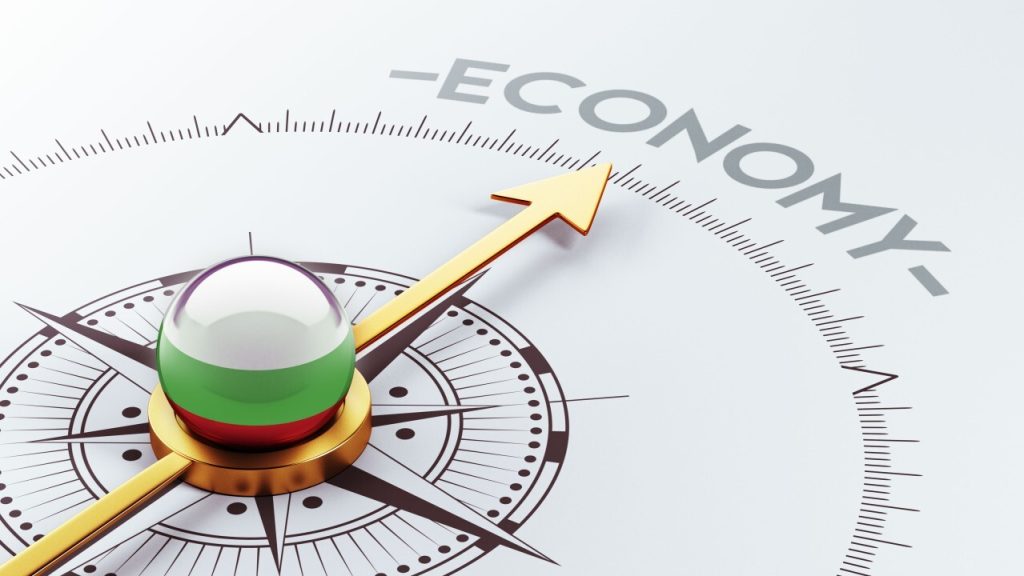
F747: And will we also see Giorgio Porcellana on the platform?
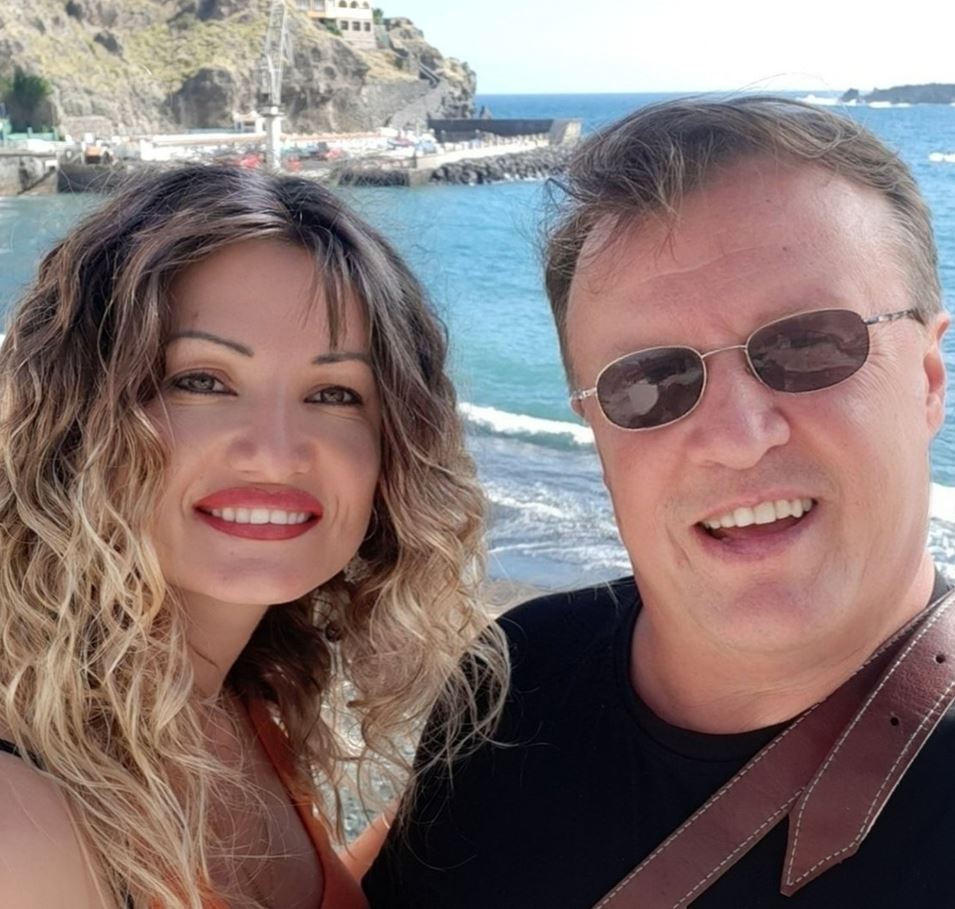
Giorgio Porcellana: Of course, you will see Jorel, his wife, friends, relatives… Everyone can participate, everyone has to contribute and everyone will receive benefits, no one excluded. After all, in a system based on gifts, no one will be left without gifts. Just think that the Foundation guarantees that if by the end of the year you have not received even 1 gift, a gift of the same amount as what you donated when you joined will be sent directly to you by an Eternal from the I.O.C Department. I guess we couldn’t be any more supportive!
F747: So can Islands of Change be said to be a decentralised solidarity economy development system?
Giorgio Porcellana: Yes, absolutely. The money used for gifts is given directly from person to person. This is done in compliance with international and national laws on gifts of small amounts of money, such as with street musicians, beggars, waiters, car park attendants or married couples.
The Islands of Change platform is administered by the International Jorel Foundation, of which I am the Official Spokesperson and Honorary President.

A completely decentralised platform, i.e. one that does not collect money, does not intervene in the passage of gifts, and does not retain percentages on the gifts that are made. No intermediaries, brokers, agents or third parties are taking over the transaction. Everything happens only between the donor and the beneficiary, in direct contact with each other.The way it works is simple and similar to a phone book. You take the central call sign, contact him, send him a WhatsApp, ask him where and how he wants to receive the gift, and once sent, he will confirm the location on the island. After that, we move on, and it’s our turn to receive the next gifts.
Participants can contact each other whenever they act as Donors or when they reach the central position as Heir, and the transitions between positions and islands occur automatically. After completing donations as a Donor and reaching the centre as an Heir, one receives the gifts and exits the island. You may choose to re-enter as a Donor by making a new gift to another Heir. This process can be repeated endlessly, as often as desired.

F747: But how do you maintain the platform if it does not generate profits?
Giorgio Porcellana: Until today, I have personally borne all the expenses for creating and managing the platform. This was possible thanks to the earnings of my companies, which allowed me to develop no less than three different archipelagos, as if I had created three separate platforms To ensure the platform’s functioning, impartial virtual Avatars called Eternal were introduced. These Avatars facilitated the access of the first participants and intervened in the event of a participant’s cancellation, ensuring the system’s continuity. Without them, Islands of Change could not exist.

The Eternal temporarily replaces the missing participants (in the event of a cancellation), allowing the others to advance to the position of Heir.
The Avatars belong to the Foundation’s Circular Solidarity Economy Department and operate as normal participants, giving and receiving without any privileges or exceptions. The eternal avatars have names inspired by Greek, Egyptian, Oriental, and mythological deities. When they receive gifts, the Foundation forfeits them as genuine donations. These are used to support the needs of the Department and the operation of the platform, as well as fund various humanitarian projects of the Foundation.
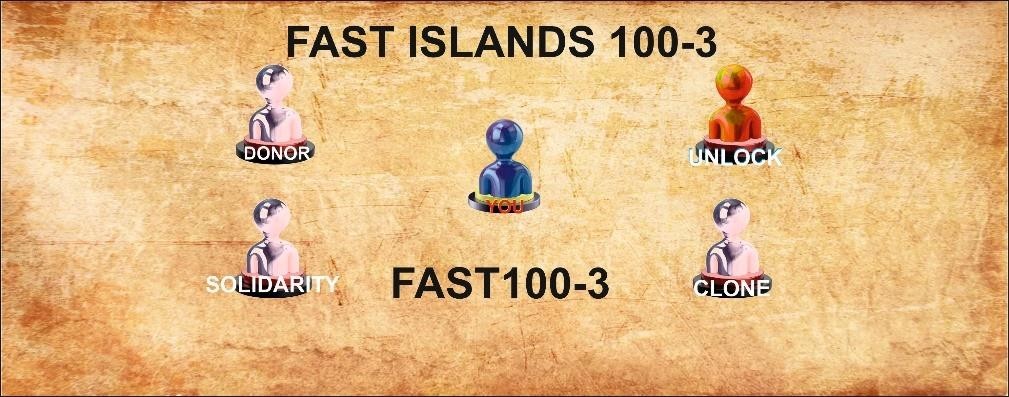

These include the construction of ecovillages, health centres, facilities for the elderly, alternative schools for children and young people, arts training centres, music, singing and dancing schools, science and technology workshops, women’s safety initiatives, shelters for people in need and digital libraries.
Thanks to these donations, the Foundation will be able to cover Islands of Change’s expenses, finally freeing me from the need to pay out of my own pocket for the technicians’ expenses and the platform’s other needs (servers, direct support, updates, emails, etc.), as I have been doing until now. In this way, the platform will be able to continue to grow and operate for the good of all, thanks to the direct support of the INTERNATIONAL JOREL FOUNDATION.
F747: However, at first glance, it might look like a Ponzi scheme. How does Islands of Change differ from a pyramid scheme?
Giorgio Porcellana: The platform was carefully analysed by several law firms in various parts of the world, and all the lawyers involved confirmed its full legality. It has nothing to do with chain letters or pyramid schemes. The fundamental difference lies in the absence of recruitment obligations.
The advancement of Donor positions can also occur with the insertion of virtual Clones, i.e. Avatars generated by the participants themselves with a simple click. This mechanism ensures that even the last of the participants can close the positions necessary to continue and reach the position of Heir. What’s more, there are automatic systems to always bring a real or virtual Avatar to your island, to keep you moving forward to the position of Heir and sooner or later you will get there!


All participants, without distinction, can contribute to the advancement of those on the same island. No one can be stuck in the same position for long, because the system allows everyone to progress, albeit at varying speeds. After the first year of experience, the platform has refined its tools to speed up the advancement of participants and make it smoother for everyone.
Islands of Change bears no resemblance to a Ponzi scheme, for several key reasons. Because it is decentralised, there is no ‘Mr Ponzi’ or central entity holding the money or a percentage of what is donated. And this is one of the things that those detractors who always think evil, who think there are always founders taking the gifts, need to get their heads around. It is all verifiable! The gifts are transferred directly from the Donor to the Heir, without intermediaries, brokers, agents or commissions for anyone. Everyone receives what is his by right. Even if an Heir decides to withhold his gifts and no longer enters the system, the other participants will continue to advance regularly. That is what Eternal and Skype Position functions are for!
The regulations perfectly describe everything. However, to improve the travel functions for participants (so that everyone can benefit from the corresponding gifts), they may be updated throughout the year.
There is no pyramid scheme, either. In Islands of Change, there is no privileged summit that continues to benefit endlessly from the work of others. Once the position of Heir has been reached and the gifts received, the participant must leave the Island. Only if he/she wishes can he/she re-enter, starting again from the base as a Donor.
This mechanism ensures a fair and inclusive cycle, in which every participant has a chance to reach the middle position. Moreover, the system is designed to ensure fairness and continuous rotation, without exclusion.
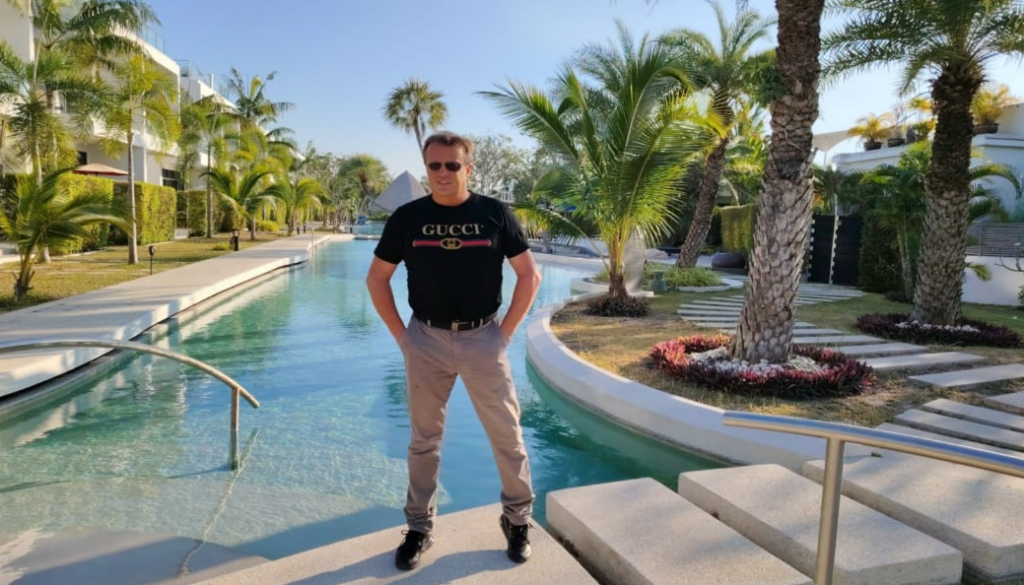
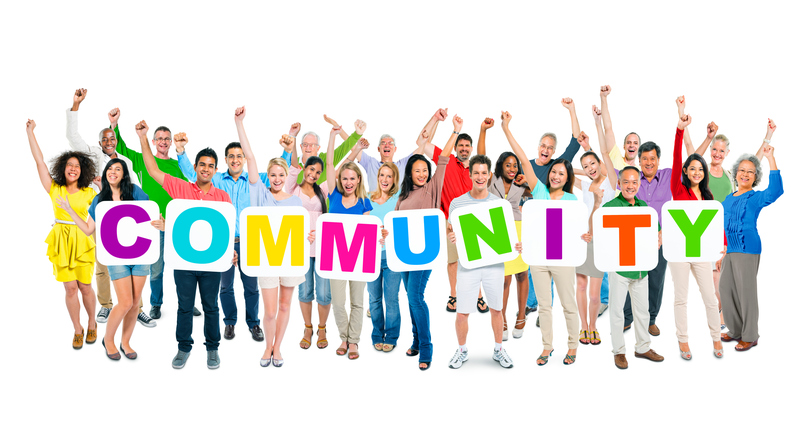
F747: Is it compulsory to stay in the community?
Giorgio Porcellana: Absolutely not! Staying in the Islands of Change community is not compulsory. Anyone can leave the platform and the community anytime, without any constraints. There are no obligations to continue and no one owes anyone anything. Giving is completely free and unconditional, with no obligation to return or continue.If one decides to leave the Islands permanently, retaining the gifts received, it is possible to do so without affecting the system’s functioning. The other participants will continue their journey on a regular basis. This is made possible by the mathematical and geometric structure that underpins the system, guaranteeing continuity even in the event of drop-outs.
Those who choose to stay and benefit from the Circular and Solidarity Economy are required to give back the surplus of the gifts received. This maintains the system’s circularity and benefits the whole community. Each participant retains only the portion they are entitled to, while redistribution contributes to the collective welfare, in line with the principles of solidarity and the platform’s regulations. In summary, participation is a free choice, and leaving the community carries no penalty. Those who decide to continue, however, actively contribute to the circulation of value within the community.
F747: What numbers have you achieved in Islands of Change?
Giorgio Porcellana: To date, the Islands of Change Community has exceeded 150,000 participants from over 52 countries. The number of members continues to grow month after month, demonstrating the scheme’s attractiveness and success. In the first year of operation, from December 2023 to December 2024, gifts with a total value of more than USD 10 million were redistributed. It is important to emphasise that these gifts never transited through the platform itself, but were exchanged directly from account to account between the participants, in full compliance with the legal and tax regulations of the modest sums exchanged through the passage of the various Islands.
I would like to point out that these numbers not only highlight the community’s growth but also the efficiency of the Circular and Solidarity Economy model that characterises Islands of Change. It is as if we know how much economy has circulated in a specific city, and it is not the mayor who generated it or distributed it but the calculation of how much economy has circulated in the city. So it is for the one that has flowed among the participants of this community.
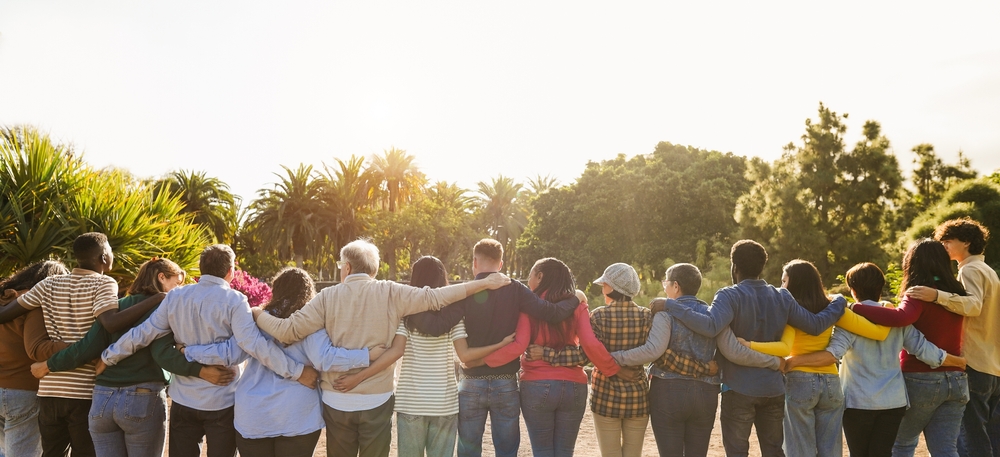


F747: What dreams has Giorgio Porcellana yet to fulfil?
Giorgio Porcellana: There are many dreams to be realised. The first goal is to create self-sufficient villages in various parts of the world that are equipped with innovative and sustainable facilities. Each village will have an independent health centre, public schools for the education of children and young people, vitality centres for the elderly dedicated to creativity and entertainment, an in-house supermarket with self-produced agricultural and food products, small livestock farms for the needs of the community, a children’s playground, gyms and sports centres, cinemas and art workshops for the development of talents in painting, sculpture, music, dance and other art forms.
But there will also be digital libraries to access millions of books from all over the world. Knowledge is sacred!

The dwellings will be built quickly with innovative and natural materials, using 3D printers, designed to promote a simpler life in harmony with nature. These villages will be places where friendship, solidarity and togetherness will be central values, fostering personal development and a sense of community. This lifestyle will attract people worldwide in search of an alternative, more natural and conscious reality.
This is another significant goal for the Foundation’s Circular and Solidarity Economy Department, which can also benefit those who do not live in the villages. Indeed, this project aims to extend the benefits of solidarity and sustainability to a wider public, creating opportunities for all.
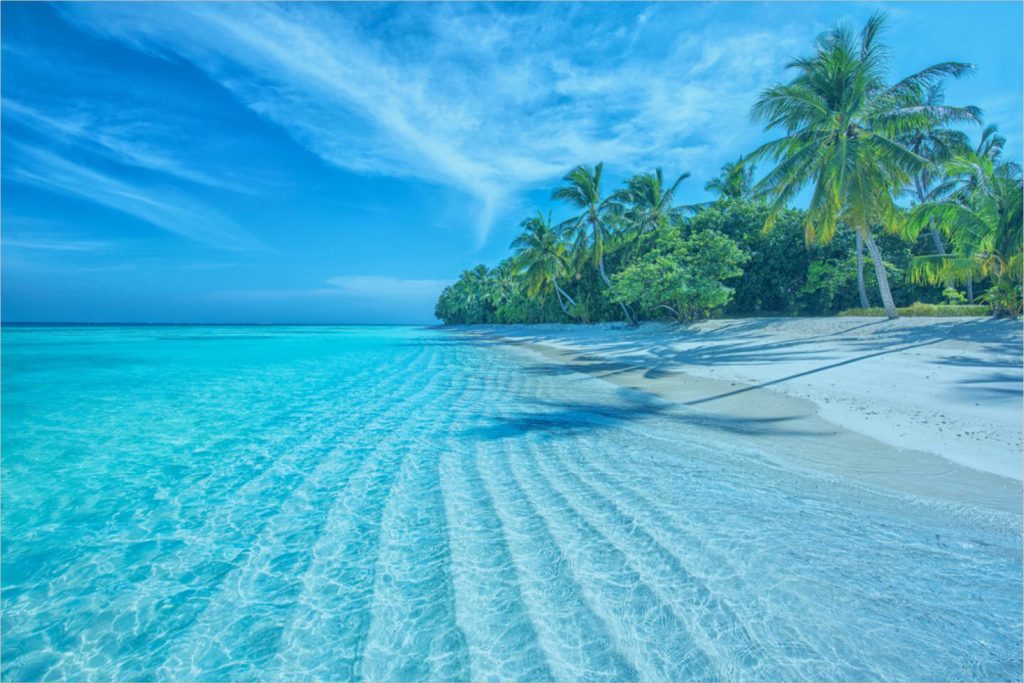
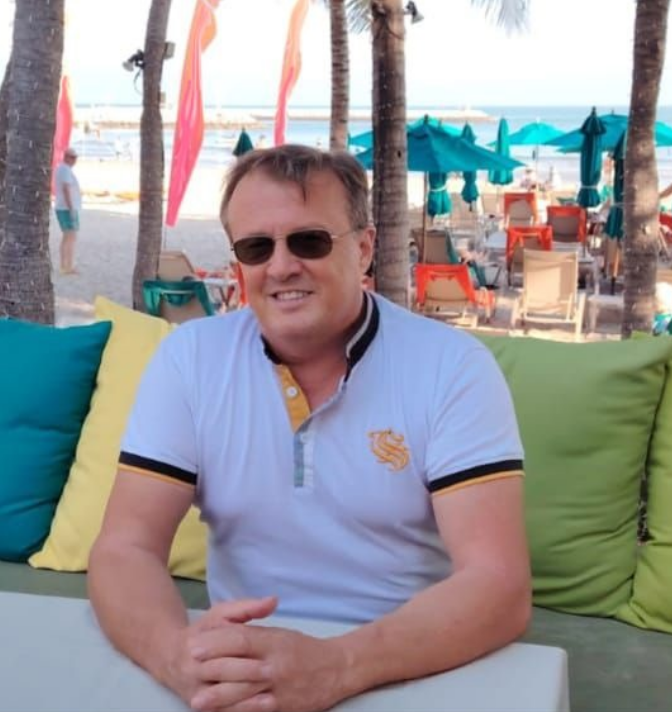
F747: What will Giorgio Porcellana do in the near future?
Giorgio Porcellana: What I do today, enjoy life and help others; the rest will be history! When I see thousands of videos and photos of families filling their shopping trolley at the supermarket and telling that they have finally realised their dreams, I will be able to say that I have done something good in life for the good of society and the people who live in it! If we don’t do it, who will?
F747: We thank you for fully describing this reality that is making headlines all over the world. This interview will be featured in thousands of magazines, TV, Radio, Blogs, Chats, Social media, and Websites around the world, you know?
Giorgio Porcellana: Thank you for giving me the opportunity to present and describe the reality of Islands of Change and the JOREL FOUNDATION. I am happy that this is happening because everyone has the right to know and access this reality, which, as I always say in Zooms, should have been given to us from the birth of each one of us since they have known these mechanisms very well for centuries.
We can say that Giorgio Porcellana, besides being an internationally renowned martial arts master and Director of an International Television Platform, promotes a reflection on economic systems through his work, inviting us to focus on sharing and mutual support. For Giorgio Porcellana, the solidarity economy is not just an economic system but a cultural and ethical way of life. According to him, the essence of the solidarity economy lies in building relationships rather than accumulating wealth.
Maybe Giorgio Porcellana will star in the next documentary on Netflix?
A production on Giorgio Porcellana would be truly fascinating. His innovative exploration of the solidarity economy as a transformative economic and cultural model has all the elements for an engaging narrative.
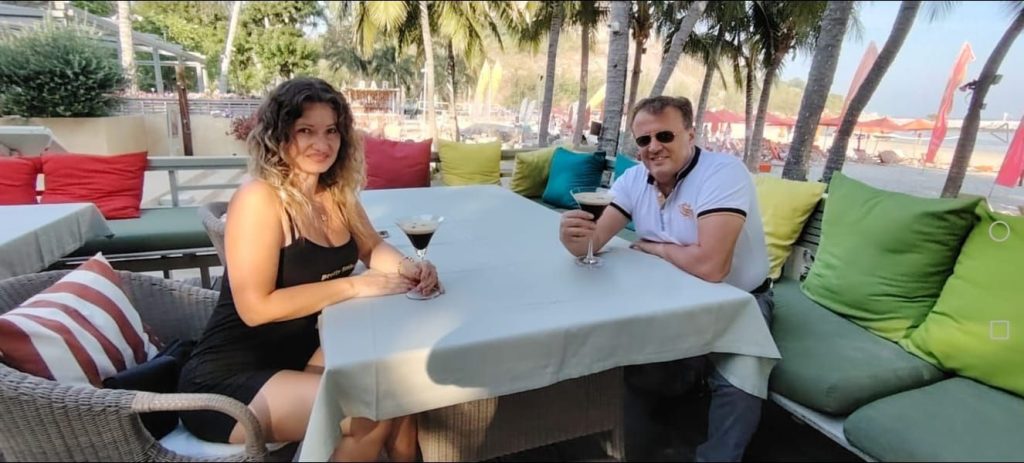
Through interviews, historical insights and concrete examples, the documentary could highlight the power of generosity and reciprocity in redefining communities. Netflix could give visibility to Giorgio Porcellana’s vision of focusing on relationships rather than transactions, bringing his message to a global audience.
By presenting communities that have embraced the principles of the solidarity economy, the documentary could demonstrate the profound effects of this approach on sustainability, equity and social cohesion. With its unique ability to combine education and entertainment, Netflix is the ideal platform to disseminate Giorgio Porcellana’s ideas and inspire viewers to rethink their relationship with money, value and the true meaning of community. But as we said, he has an International Television and Film platform among his companies, so who knows, if Netflix won’t do it, he will?
